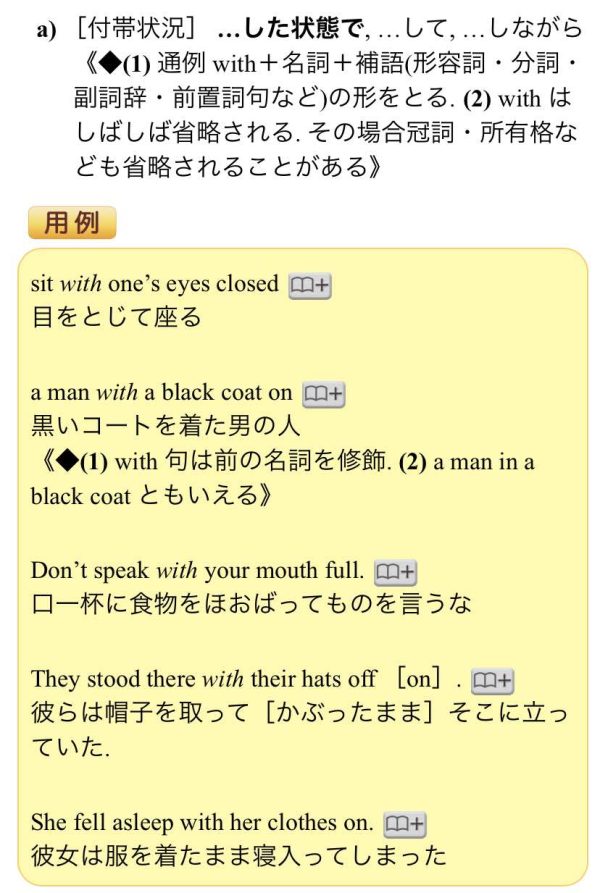TOEFLで出題されやすいトピック、使われやすい単語と文法表現を意識して作成したパッセージ その4と単語リストを紹介します。単語力、文法力、背景知識の向上にお役立てください。
» (その1)TOEFL単語力・文法力・背景知識増強パッセージ 1 “The Possibility of Life on Mars”
» (その2)TOEFL単語力・文法力・背景知識増強パッセージ 2 “Why Ancient Teotihuacán thrived”
» (その3)TOEFL単語力・文法力・背景知識増強パッセージ 3 “Defense Mechanisms of the Leaf-Tailed Gecko”
The Origins of Opera
Opera is a form of musical performance that combines singing, acting, and orchestral music to tell a story. Its origins can be traced back to the late sixteenth century in Italy, where a group of poets, musicians, and intellectuals sought to revive the musical traditions of ancient Greece. The earliest operas were based on Greek mythology and featured recitative, a style of singing that imitates the rhythms and delivery of ordinary speech. They were also characterized by elaborate stage sets, often flamboyant costumes, and complex and intricate vocal music accompanied by a small orchestra. Opera quickly spread throughout Europe, and composers and librettists adapted the form to reflect the artistic and cultural traditions of their respective regions.
Today, opera continues to be an important part of musical culture, with new works being composed and performed all over the world. Its origins in Italy more than four hundred years ago represent a pivotal moment in the history of Western music and theater, and it remains a vibrant and influential art form to this day.
173 words
単語リスト
比較的簡単なものも取り上げています。上のパッセージを「意味を理解しながらスラスラ読める」ようになったら、リストの単語の意味をすべて(文脈の中でなら)分かるようになったということ。単語力だけではなく、アカデミックな英文への慣れ、背景知識も養成しましょう。
The Origins of Opera
Opera is a form of musical performance that combines singing, acting, and orchestral music to tell a story. Its origins can be traced back to the late sixteenth century in Italy, where a group of poets, musicians, and intellectuals sought to revive the musical traditions of ancient Greece.
origin 起源、由来、始まり、初め
combine 〜を結合させる[組み合わせる、兼ね備える]
orchestral オーケストラ(用)の
be traced back to ~にさかのぼる[由来する] = trace back to
late 終わりごろの、後期の、末期の、後半の = near the end of a period of time such as a day, month, or season
poet 詩人、歌人
intellectual 知識人、有識者、文化人、インテリ
seek to do [seek, sought, sought] ~しようとする[努める、努力する]
revive 〜を復活させる[復興させる、再びはやらす]
ancient 古代の、太古の、大昔の
Greece ギリシャ
The earliest operas were based on Greek mythology and featured recitative, a style of singing that imitates the rhythms and delivery of ordinary speech. They were also characterized by elaborate stage sets, often flamboyant costumes, and complex and intricate vocal music accompanied by a small orchestra. Opera quickly spread throughout Europe, and composers and librettists adapted the form to reflect the artistic and cultural traditions of their respective regions.
be based on ~に基づいている、~を根拠にしている
Greek ギリシャ(人、語)の[に関する]
mythology 神話
feature 〜を呼び物にする、〜を特徴とする = include or show something as a special or important part of something
recitative レチタティーヴォ《クラシック音楽の歌唱様式の一種で、話すような独唱をいう》;(オペラなどの)叙唱(法)、朗唱(法)《話すように歌うこと》
imitate (芸術などのスタイル)をまねる[模倣する、再現する]
rhythm リズム、調子
delivery 話し方、発声法、歌い方、歌唱法 = the way in which somebody speaks, sings a song, etc. in public
ordinary speech 日常会話
characterize 〜を特徴づける[特色づける]
elaborate 手の込んだ、精巧な、入念な、苦心して作り上げた = very complicated and detailed; carefully prepared and organized
stage set 舞台装置
flamboyant (服装などが)きらびやかな、華やかな、派手な、飾り立てた = brightly colored or decorated and likely to attract attention
intricate 入り組んだ、込み入った = very detailed in design or structure; containing many small parts or details that all work or fit together
vocal ボーカルの、歌声の、声楽の;声の、音声の、口頭の
accompany (人、歌)の伴奏をする = play the supporting music while someone sings or plays the main tune
spread [spread, spread, spread] 広がる、広まる = become widely known and passed on
composer 作曲家 = a person who writes music, especially classical music
librettist 歌劇の台本作者 = a person who writes the words for an opera or a musical play / someone who writes the librettos of operas(libretto「歌劇の台本」)
adapt (異なる状況などに合わせて)~を作り変える[改作する]、〜を変化[適応、順応]させる = change something in order to make it suitable for a new use or situation
reflect 〜を映す[反映する、表す] = show, express, or be a sign of something
respective それぞれの、各自の、個別の 《respectiveの直後に来る名詞は複数形》
region 地域、地方、地帯
Today, opera continues to be an important part of musical culture, with new works being composed and performed all over the world. Its origins in Italy more than four hundred years ago represent a pivotal moment in the history of Western music and theater, and it remains a vibrant and influential art form to this day.
work [通例複数形](芸術などの)作品、著作物
compose 〜を作曲する[作成する、創作する]
represent 〜を表す[象徴する、示す、意味する]
pivotal 極めて重要な = extremely important and affecting how something develops
moment (ある特定の)時点、時期;瞬間
remain 依然として〜の(状態の)ままである、相変わらず〜である
vibrant 活気に満ちた、力強い、活力のある = full of activity or energy in a way that is exciting and attractive
influential 影響力の強い[大きい]、有力な、勢力のある
to this day 今日(に至る)まで
以下のYouTubeショート動画内の30語は、単語リストの中から選んだものです。
パッセージでは recitative「レチタティーヴォ」というオペラでの一つの歌い方を取り上げていますが、「話すように歌う」がどのようなものかピンとこない人が多いかと思います。以下の動画が分かりやすく伝えていたので、是非ご確認ください(途中から2分半くらい)。こちらの動画では recitative「レチタティーヴォ(叙唱、朗唱)」の前に aria「アリア(詠唱)」を説明しており、recitativeをより理解するためにariaの話からご覧ください。
【オペラ解説】オペラって何?オペラの魅力と特徴、オペラに登場する基礎用語をプロが解説!アリア、レチタティーヴォ、ハイCって何?ボエーム、フィガロの結婚その他(YouTube動画)
以下の動画は2:20と短いので、是非全部見ましょう。ここでは Libretto「歌劇の台本」(librettist「歌劇の台本作者」が書いたもの)とRecitativeとAriaを説明しています。この動画内で使われる難しめの表現を紹介しておきます。聞き取りにくい人は字幕を設定してご覧ください。
glory「称賛、賛美、栄誉」
repeat yourself(ここではオペラの歌手が)「何度も[繰り返して]言う」
spit it out「はっきりと[もっと大きな声で]言う;白状する」
folks「人々」(= people)
straight skinny「真実」
tell it like it is「率直に言う、ありのままに話す[述べる]」
sing her heart out「心[気持ち]を込めて歌う」
4 08 Opera – Libretto, Recitative, and Aria(YouTube動画)
単語力・文法力増強 穴埋め問題4
できればそれぞれの解答を紙などに書いてください。実際に書いた方が単語を覚えやすくなるので。スペルが合っている必要はありません。
The Origins of Opera
Opera is a form of musical performance that 1) com singing, acting, and orchestral music to tell a story. Its origins can be 2)[3語]tr b the late sixteenth century in Italy, where a group of poets, musicians, and 3) intel sought to 4) rev the musical traditions of 5)[2語]an Gr . The earliest operas were based on 6)[2語]Gr my and 7) fea recitative, a style of singing that 8) im the rhythms and 9) de of ordinary speech. They were also 10) cha by 11) ela stage sets, often 12) fla costumes, and complex and 13) intr vocal music 14) acco by a small orchestra. Opera quickly 15) spr throughout Europe, and 16) com and librettists 17) ad the form to 18) refl the artistic and cultural traditions of their 19)[2語]res re .
Today, opera continues to be an important part of musical culture, with new 20) wo being composed and performed all over the world. Its origins in Italy more than four hundred years ago 21) rep a 22) piv moment in the history of Western music and theater, and it remains a 23) vib and 24) infl art form to this 25) d .
単語力・文法力増強 穴埋め問題4(正解・解説)
The Origins of Opera
Opera is a form of musical performance that 1) com singing, acting, and orchestral music to tell a story. Its origins can be 2)[3語]tr b the late sixteenth century in Italy, where a group of poets, musicians, and 3) intel sought to 4) rev the musical traditions of 5)[2語]an Gr .
1)combines「〜を結合させる[組み合わせる、兼ね備える]:thatは主格の関係代名詞であり、a form (of musical performance) という単数の名詞を指すので、動詞はcombinesとsが付きます。
2)(be) traced back to「~にさかのぼる[由来する]」
3)intellectuals「知識人、有識者、文化人、インテリ」 :その前がpoets, musiciansと複数形になっていますし、intellectualsも複数形にしなければなりません。中には「知識人、インテリ」という意味からintelligentsia、intelligentsにした人がいるかも。intelligentsia「知識階級,インテリ層」(= intellectuals who form an artistic, social, or political elite)はこれで複数の意味になり、sをつけません。ここではintellectualsの代わりに使えます。intelligentは「形容詞」で使われる表現であり、名詞になっているintelligentsは正しくない英語表現と一般的には考えられています。
4)revive「〜を復活させる[復興させる、再びはやらす]」 :revitalize「〜を活性化する[再生する、復興させる]」もここで使えます。
5)ancient Greece「古代ギリシャ」
The earliest operas were based on 6)[2語]Gr my and 7) fea recitative, a style of singing that 8) im the rhythms and 9) de of ordinary speech.
6)Greek mythology「ギリシャ神話」:こちらは「ギリシャ(人、語)の[に関する]」という形容詞なのでGreeceではなくGreek。mythology(= a collection of ancient myths, especially those of a particular country or religion)の代わりに mythsが使えます。mythも「神話」という意味ですが、Greek mythologyは「ギリシャ神話全体」(集合的)、a Greek mythは「1編のギリシャ神話」と、mythは個々の神話(物語)を指します。
7)featured「〜を呼び物にする、〜を特徴とする」:過去の話なので過去形にします(were based onとfeaturedがandで並列構造になっていますね)。
8)imitates「(芸術などのスタイル)をまねる[模倣する、再現する]」
過去形ではなく、現在形が使われます。recitative, a style of singing that imitates the rhythms and delivery of ordinary speech「レチタティーヴォという、 通常の話し言葉のリズムと語り口を模倣する歌唱スタイル」(recitativeとa style of singing that imitates the rhythms and delivery of ordinary speechは同格でイコールの関係)という意味においてimitateするのは過去に限ったことではなく、今もそうなので現在形を使います。
9)delivery 「話し方、発声法、歌い方、歌唱法」 ( = the way in which somebody speaks, sings a song, etc. in public)
They were also 10) cha by 11) ela stage sets, often 12) fla costumes, and complex and 13) intr vocal music 14) acco by a small orchestra.
10)characterized「〜を特徴づける[特色づける]」
11)elaborate「手の込んだ、精巧な、入念な、苦心して作り上げた」 = very complicated and detailed; carefully prepared and organized
12)flamboyant「(服装などが)きらびやかな、華やかな、派手な、飾り立てた」 = brightly colored or decorated and likely to attract attention
13)intricate「入り組んだ、込み入った」 = very detailed in design or structure; containing many small parts or details that all work or fit together
intriguing「興味[好奇心]をそそる[かき立てる]、面白い」も使えます。
14)accompanied「(人、歌)の伴奏をする」
Opera quickly 15) spr throughout Europe, and 16) com and librettists 17) ad the form to 18) refl the artistic and cultural traditions of their 19)[2語]res re .
15)spread「広がる、広まる」:ここでは過去形で使われています。[spread, spread, spread]
16)composers「作曲家」:一人ではないので複数形。
17)adapted:adapt「(異なる状況などに合わせて)~を作り変える[改作する]、〜を変化[適応、順応]させる」 = change something in order to make it suitable for a new use or situation 。adから始まっていたので adopt「~を選ぶ[採用する]」にした人もいるかも。ここでは文脈上正解になりません。
18)reflect「〜を映す[反映する、表す]」
19)respective regions:respective「それぞれの、各自の、個別の」、region「地域、地方、地帯」respectiveの直後に来る名詞は複数形というルールがありますが、ここではひとつのregionではないとイメージできていれば複数形にできるはず。
Today, opera continues to be an important part of musical culture, with new 20) wo being composed and performed all over the world. Its origins in Italy more than four hundred years ago 21) rep a 22) piv moment in the history of Western music and theater, and it remains a 23) vib and 24) infl art form to this 25) d .
20)works [通例複数形]「(芸術などの)作品、著作物」
21)represent「〜を表す[象徴する、示す、意味する]」
22)pivotal「極めて重要な」 = extremely important and affecting how something develops
23)vibrant「活気に満ちた、力強い、活力のある」 = full of activity or energy in a way that is exciting and attractive
24)influential「影響力の強い[大きい]、有力な、勢力のある」
25)(to this) day「今日(に至る)まで」
付帯状況のwith
“Why Ancient Teotihuacán thrived”のパッセージ の
Moreover, the city’s position along major trade routes allowed it to become a center of commerce, with goods from across Mesoamerica passing through its gates.
において、この文は
「with + A(名詞) + B(形容詞 / 現在分詞 / 過去分詞 / 前置詞句)」の 付帯状況のwith の形になっている
と説明しました(ここでは現在分詞 Ving形)。
以下、付帯状況のwith の文8つ。
付帯状況の表現は「AがBの[している、した、されている、された]状態で」という意味を表します。
[形容詞]
1. Kate walked along the beach with her hair wet from swimming in the ocean.
「ケイトは、海で泳いだ後に濡れた髪でビーチを歩いた。」
2. After an intense workout at the gym, Ben left with his shirt soaked in sweat, feeling both exhausted and accomplished.
「ジムで激しいトレーニングをした後、ベンは汗でびしょ濡れのシャツを着たまま(ジムを)出て、疲労と達成感の両方を感じた。」
[現在分詞]
3. The dog played in the backyard with its tail wagging excitedly.
「犬は、しっぽを興奮して振りながら裏庭で遊んだ。」
4. The long-awaited college reunion was a night to remember, with everyone laughing and sharing stories of their time spent together on campus.
「待ちに待った大学の同窓会は、皆が笑ったり、一緒に過ごしたキャンパスでの(時間の)話をし合って忘れられない夜となった。」
[過去分詞]
5. The boy built a sandcastle with his hands covered in wet sand.
「男の子は、濡れた砂で覆われた手で砂の城を作った。」
6. Nancy finally finished the complex puzzle with all the pieces fit perfectly together, feeling proud of the intricate world map she had assembled.
「ナンシーは、すべてのピースをぴったりはめて手間のかかるパズルを完成させ、自分が組み立てた複雑な世界地図を誇りに思った。」
(fitはここでは過去分詞。fittedでもOK)
[前置詞句]
7. The kids built a snowman in the yard with a hat on its head.
「子供たちは、帽子をかぶった雪だるまを庭で作った。」
8. The boy opened his birthday present with a big smile on his face, excited to see what surprise awaited him inside the colorful wrapping paper.
「男の子は、顔に満面の笑みを浮かべて誕生日プレゼントを開け、カラフルな包装紙の中で彼を待っているサプライズが何か、見るのを楽しみにしていた。」
ちなみに青字は分詞構文。分詞構文については以下で説明しました
» TOEFL単語力・文法力・背景知識増強パッセージ 3 “Defense Mechanisms of the Leaf-Tailed Gecko”
以下、ロイヤル英文法 (p. 698)での「付帯状況でのwith」の説明。
————————————————————————————————–
付帯状況:「〜して, 〜したまま」ある動作・状態に他の動作・状態が負荷されていることを表す。
Listen to me carefully, with your books closed.「本を閉じて私の話を注意して聞きなさい」
The bear stood there with his tongue hanging out.「熊は舌をだらりと出してそこに立っていた」
————————————————————————————————–
ジーニアス英和辞典(withの項目)では以下のように説明しています。

with + 独立分詞構文
これらの 「with + A(名詞) + B(形容詞 / 現在分詞 / 過去分詞 / 前置詞句)」を、独立分詞構文にwithがついた形と説明することもできます。
with + 独立分詞構文 の形を ロイヤル英文法 (p. 526)では以下のように説明しています。
————————————————————————————————–
<with+独立分詞構文>
付帯状況を表す独立分詞構文は、with をつけた形をとることが多い。逆の言い方をすれば、付帯状況を表す with 構文(→ p. 698)の多くは,withを取り去れば独立分詞構文になるということである。
The little girl called out to her mother, with tears running down her cheeks.「ほおに涙を流しながら,その少女は母親に大声で呼びかけた」
He sat in the chair with his legs crossed.「彼は足を組んで椅子に腰掛けていた」
注)<with + O + 形容詞>:
being の省略から,形容詞が直接続く形も多い。
Don’t talk with your mouth full.「食べ物をほおばって話すな」
————————————————————————————————–
また以下、Practical English Usage(pp. 406-407) の説明。
————————————————————————————————–
5 participle clauses with their own subjects
A participle clause can have its own subject. This happens most often in a rather formal style.
Nobody having any more to say, the meeting was closed.
All the money having been spent, we started looking for work.
The dog ran across the field, its tail wagging excitedly in the breeze.
Hands held high, the dancers circle to the right.
The subject is often introduced by with when the clause expresses accompanying circumstances.
A car roared past with smoke pouring from the exhaust.
With Peter working in Birmingham, and Lucy traveling most of the week, the house seems pretty empty.
————————————————————————————————–
「with + A(名詞) + B(形容詞 / 現在分詞 / 過去分詞 / 前置詞句)」の形を「付帯状況のwith」と考えても「with + 独立分詞構文」と考えてもどちらでもOKです。
(形容詞、前置詞句が続く場合はbeingが省略された形と考える)
the Origins of Operaの文の解説
“The Origins of Opera” のパッセージ にある、以下の文ですが
Today, opera continues to be an important part of musical culture, with new works being composed and performed all over the world.
分詞構文と同様、beingの部分は省略ができ
Today, opera continues to be an important part of musical culture, with new works composed and performed all over the world.
と表現することも可能です。しかしbeingがあると「世界中で新たな作品が創作され、上演されている」と、『現在行われている』ことが強調された意味になります。
TOEFLにおいて、この「with + A(名詞) + B(形容詞 / 現在分詞 / 過去分詞 / 前置詞句)」の形は、文脈に沿って意味が取れればよく、決して難しいものではありません。
自分でこのような文を「書きたい」と思う人は、是非、上の英文すべてを復唱*してください。通勤電車や徒歩、お風呂に入りながらなどの10分くらいの間に集中して復唱しましょう。
*「復唱」とは、1文(または長い文なら途中まで)を音読した後、その文から視線を外し見ないで言うこと。1文を見ないで発話するには、その文で使われている表現に慣れていなければなりません。そのため必要に応じて黙読、音読を繰り返しましょう。復唱を行うのは1文ずつであり、段落などのいくつもの文のまとまりを覚える「暗唱」とは異なります。1文を発話後に言えるくらい覚えられたらOK。この作業を継続していると長めの文でも覚えやすくなっていると感じ、表現のパターンが定着してきていると分かります。


